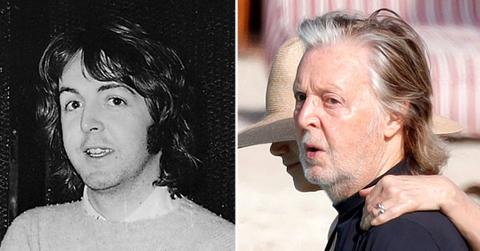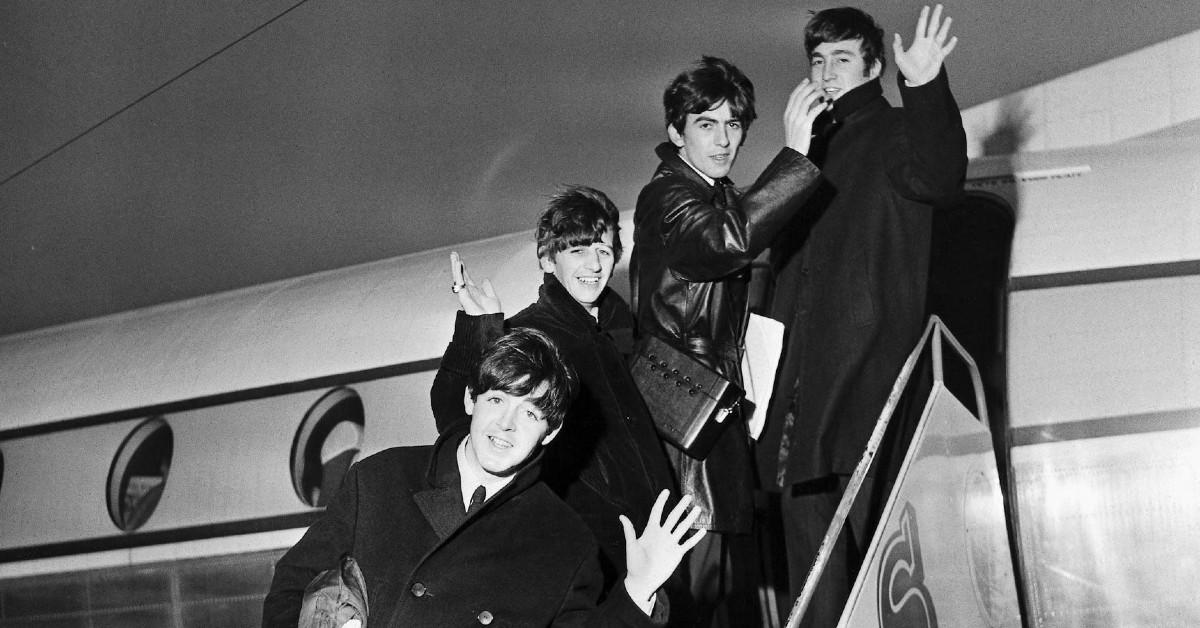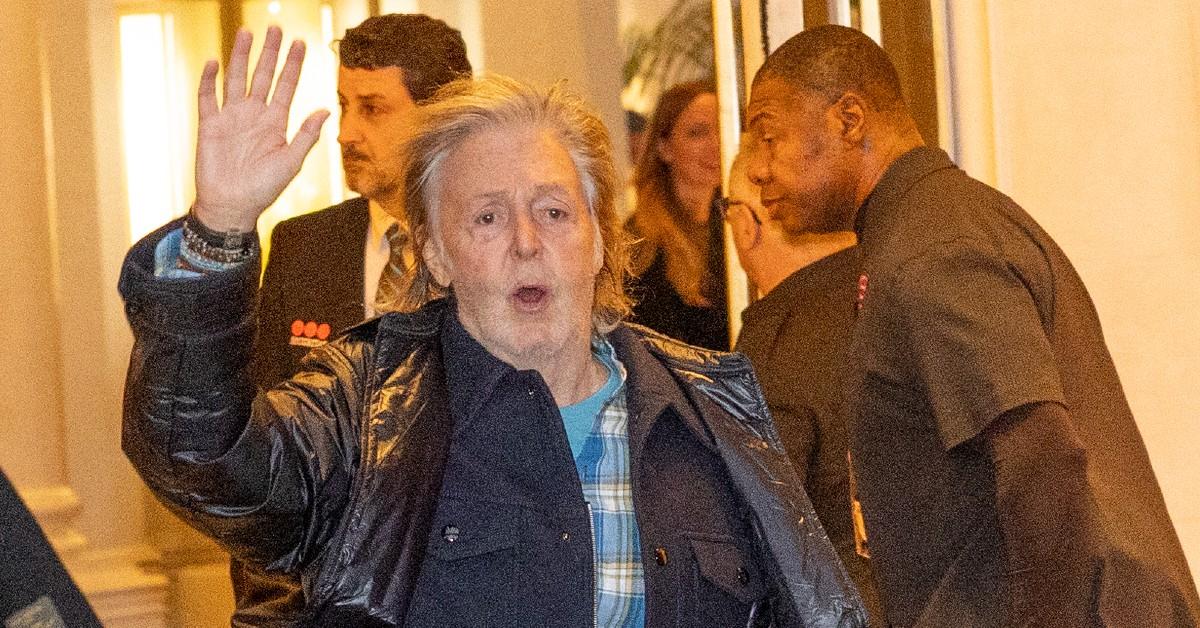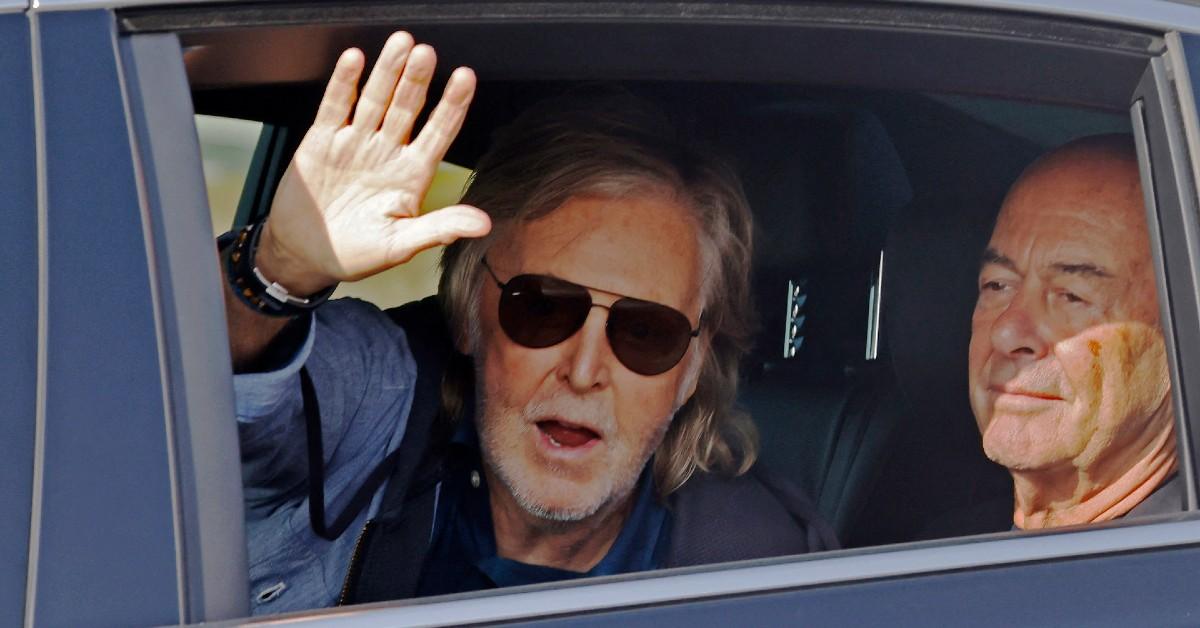 EXCLUSIVE
EXCLUSIVEPaul McCartney Reveals Horrific 'Bed Paralysis' Incident That Left Him Fearing He Was Going to Die After He Left The Beatles

Paul McCartney spoke about a terrifying health incident in his new memoir.
Nov. 9 2025, Published 7:00 a.m. ET
Sir Paul McCartney has revealed how a terrifying "bed paralysis" episode in the aftermath of The Beatles' breakup left him convinced he was going to die alone on his remote Scottish farm.
The 83-year-old music icon recalls waking in the middle of the night "unable to lift (his) head off the pillow" and fearing he would suffocate. The ordeal is detailed in Wings: The Story of a Band on the Run, McCartney's new memoir compiled from fresh interviews and material drawn from his personal archives.

Paul McCartney details a health issue in his memoir.
His book recounts the chaotic months following the Beatles' split in 1970, when McCartney, then just 28, retreated to his isolated farmhouse, High Park, near Campbeltown on Scotland's Kintyre peninsula. The property had no bath, patchy electricity and stood miles from the nearest village – a deliberate escape from the frenzy of fame. But before he enjoyed the isolation, McCartney admits loneliness and depression hit him hard.
"Leaving The Beatles, or having The Beatles leave me, whichever way you look at it, was very difficult because that was my life's job," McCartney writes. "When it stopped, it was like, 'What do we do now?' In truth, I didn't have any idea."

Paul McCartney didn't know what to do post-Beatles fame.
The sense of uncertainty, he says, soon began to affect him physically. "I remember lying awake at night shaking, which has not happened to me since. One night, I awoke and I couldn't lift my head off the pillow. I thought, 'If I don't do this, I'll suffocate.' I remember hardly having the energy to pull myself up, but with a great struggle I pulled my head and lay on my back and thought, 'That was a bit near.'"
- How Sir Paul McCartney's Wife Stopped Him Being Stabbed to Death by Calling Him a 'Soul Brother' When They Were Faced With Mob of Black Muggers
- Bromance: Paul McCartney Was A 'Fan' Of John Lennon Since Their First Meeting
- 12 Celebrities Who've Had to Deny Their Own Death Rumors: From Macaulay Culkin to Paul McCartney and More
Want OK! each day? Sign up here!

Paul McCartney was 'under immense strain' at one point in his life, a source said.
Friends say the episode was the lowest point in McCartney's life – a moment of panic brought on by exhaustion, isolation and the sudden loss of purpose after the world's most famous band imploded.
One source close to the musician said: "Paul was under immense strain. The Beatles had been everything to him since he was a teenager. When it all ended, he was lost – drinking heavily, sleeping badly, and struggling with anxiety. That night in bed really shook him. He genuinely thought he was dying."

The singer's former wife described their years in Scotland as 'beautiful but desolate.'
McCartney's former wife, photographer and musician Linda McCartney, who died in 1998 aged 56, described the early years in Scotland as "beautiful but desolate."
In the memoir, she recalls: "Paul was not in great shape. He was drinking a lot, playing a lot and, while surrounded by women and fans, not very happy. We all thought, 'Oh, the Beatles and flower power,' but those guys had every parasite and vulture on their backs."
Paul explains that the move north – initially to escape the pressures of fame – became a crucial step toward rebuilding his life and career. "Going up to Scotland was real freedom for us," he says. "It was an escape, our means of finding a new direction in life and having time to think about what we really wanted to do."
High Park, however, was more survival than sanctuary. "We didn't have a bath," the singer recalls. "But next door to our little kitchen, there was a place where the farmers had cleaned the milking machinery. It was a tub that was three feet off the ground, a big galvanized tub. I said, 'We should fill this with hot water. We can have a bath.'"
Linda remembered the landscape as "the most beautiful land you have ever seen," though far removed from the comfort of London. "It was the first feeling I'd ever had of civilization dropping away," she said. "It felt like another era."
For Paul, those cold, quiet nights in Kintyre eventually became the foundation of his recovery and the birthplace of Wings, the band he would form in 1971. But the haunting memory of that night, trapped and unable to move, still stands out as one of the most frightening moments of his life.
Wings: The Story of a Band on the Run by Paul McCartney was published on November 4.

